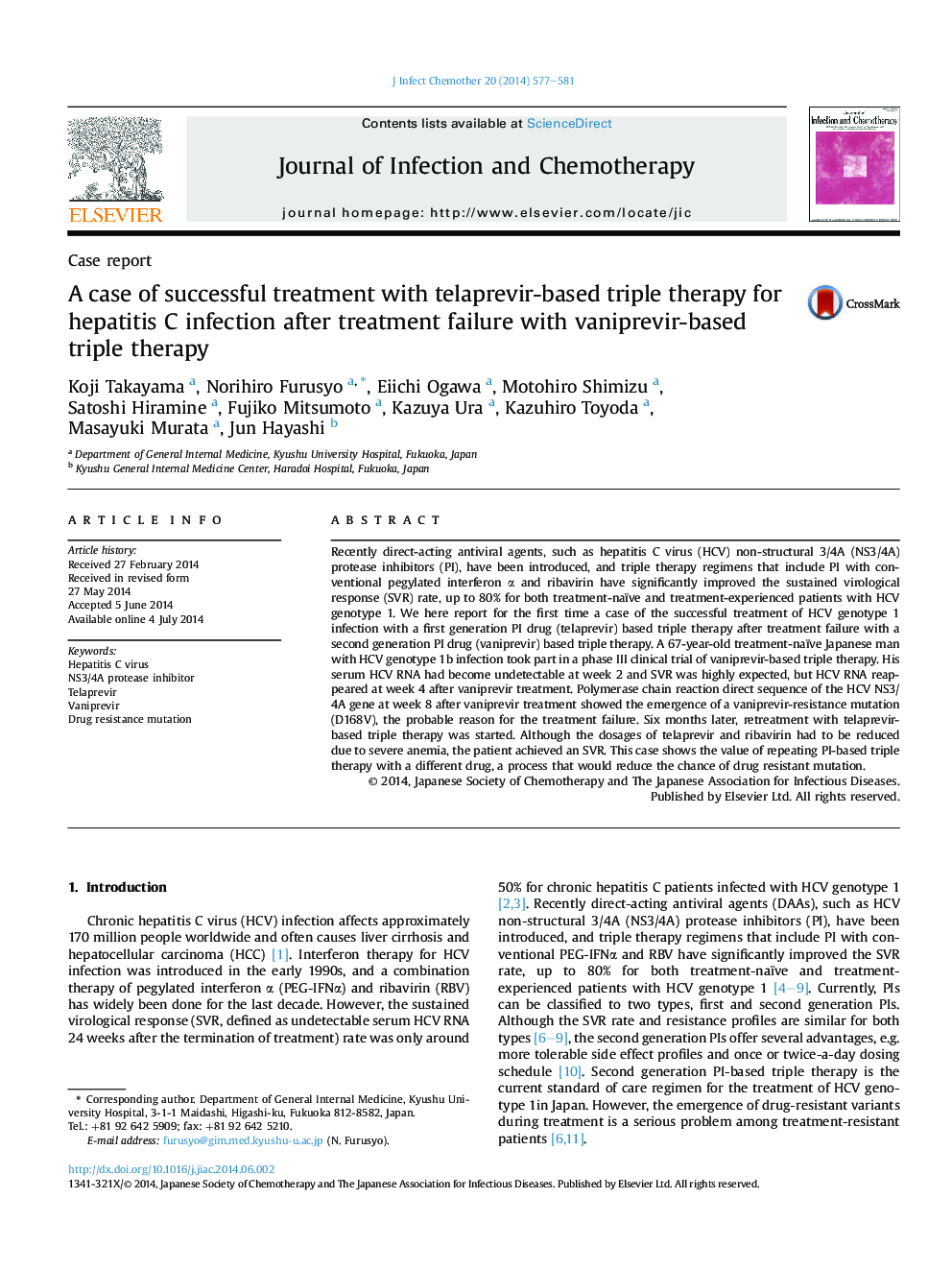| Article ID | Journal | Published Year | Pages | File Type |
|---|---|---|---|---|
| 6123773 | Journal of Infection and Chemotherapy | 2014 | 5 Pages |
Abstract
Recently direct-acting antiviral agents, such as hepatitis C virus (HCV) non-structural 3/4A (NS3/4A) protease inhibitors (PI), have been introduced, and triple therapy regimens that include PI with conventional pegylated interferon α and ribavirin have significantly improved the sustained virological response (SVR) rate, up to 80% for both treatment-naïve and treatment-experienced patients with HCV genotype 1. We here report for the first time a case of the successful treatment of HCV genotype 1 infection with a first generation PI drug (telaprevir) based triple therapy after treatment failure with a second generation PI drug (vaniprevir) based triple therapy. A 67-year-old treatment-naïve Japanese man with HCV genotype 1b infection took part in a phase III clinical trial of vaniprevir-based triple therapy. His serum HCV RNA had become undetectable at week 2 and SVR was highly expected, but HCV RNA reappeared at week 4 after vaniprevir treatment. Polymerase chain reaction direct sequence of the HCV NS3/4A gene at week 8 after vaniprevir treatment showed the emergence of a vaniprevir-resistance mutation (D168V), the probable reason for the treatment failure. Six months later, retreatment with telaprevir-based triple therapy was started. Although the dosages of telaprevir and ribavirin had to be reduced due to severe anemia, the patient achieved an SVR. This case shows the value of repeating PI-based triple therapy with a different drug, a process that would reduce the chance of drug resistant mutation.
Related Topics
Life Sciences
Immunology and Microbiology
Applied Microbiology and Biotechnology
Authors
Koji Takayama, Norihiro Furusyo, Eiichi Ogawa, Motohiro Shimizu, Satoshi Hiramine, Fujiko Mitsumoto, Kazuya Ura, Kazuhiro Toyoda, Masayuki Murata, Jun Hayashi,
